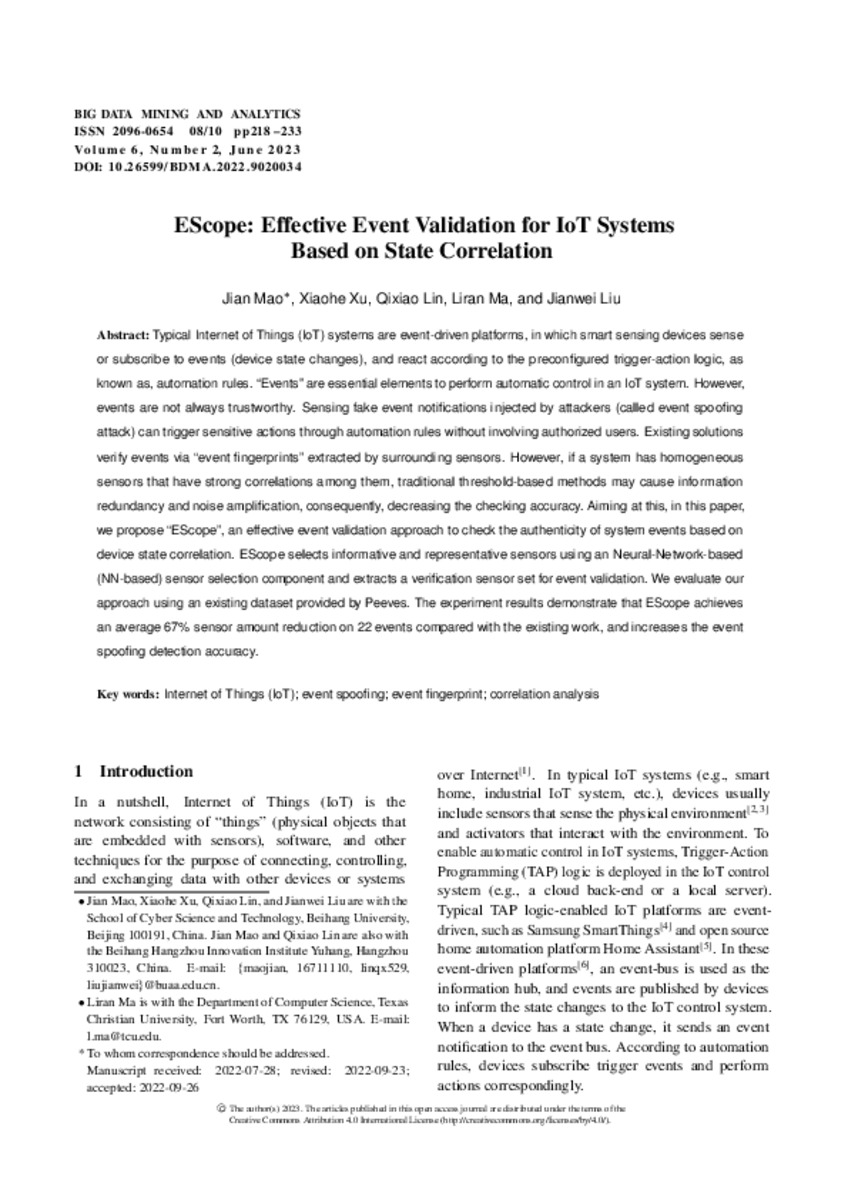EScope: Effective Event Validation for IoT Systems Based on State CorrelationShow full item record
| Title | EScope: Effective Event Validation for IoT Systems Based on State Correlation |
|---|---|
| Author | Mao, Jian; Xu, Xiaohe; Lin, Qixiao; Ma, Liran; Liu, Jianwei |
| Date | 2023 |
| Abstract | Typical Internet of Things (IoT) systems are event-driven platforms, in which smart sensing devices sense or subscribe to events (device state changes), and react according to the preconfigured trigger-action logic, as known as, automation rules. “Events” are essential elements to perform automatic control in an IoT system. However, events are not always trustworthy. Sensing fake event notifications injected by attackers (called event spoofing attack) can trigger sensitive actions through automation rules without involving authorized users. Existing solutions verify events via “event fingerprints” extracted by surrounding sensors. However, if a system has homogeneous sensors that have strong correlations among them, traditional threshold-based methods may cause information redundancy and noise amplification, consequently, decreasing the checking accuracy. Aiming at this, in this paper, we propose “EScope”, an effective event validation approach to check the authenticity of system events based on device state correlation. EScope selects informative and representative sensors using an Neural-Network-based (NN-based) sensor selection component and extracts a verification sensor set for event validation. We evaluate our approach using an existing dataset provided by Peeves. The experiment results demonstrate that EScope achieves an average 67% sensor amount reduction on 22 events compared with the existing work, and increases the event spoofing detection accuracy. |
| Link | https://doi.org/10.26599/BDMA.2022.9020034
https://repository.tcu.edu/handle/116099117/57369 |
| Department | Computer Science |
| Subject | Performance evaluation
Correlation Automation Redundancy Artificial neural networks Fingerprint recognition Sensor phenomena and characterization |
Files in this item
This item appears in the following Collection(s)
- Research Publications [1007]
© TCU Library 2015 | Contact Special Collections |
HTML Sitemap



